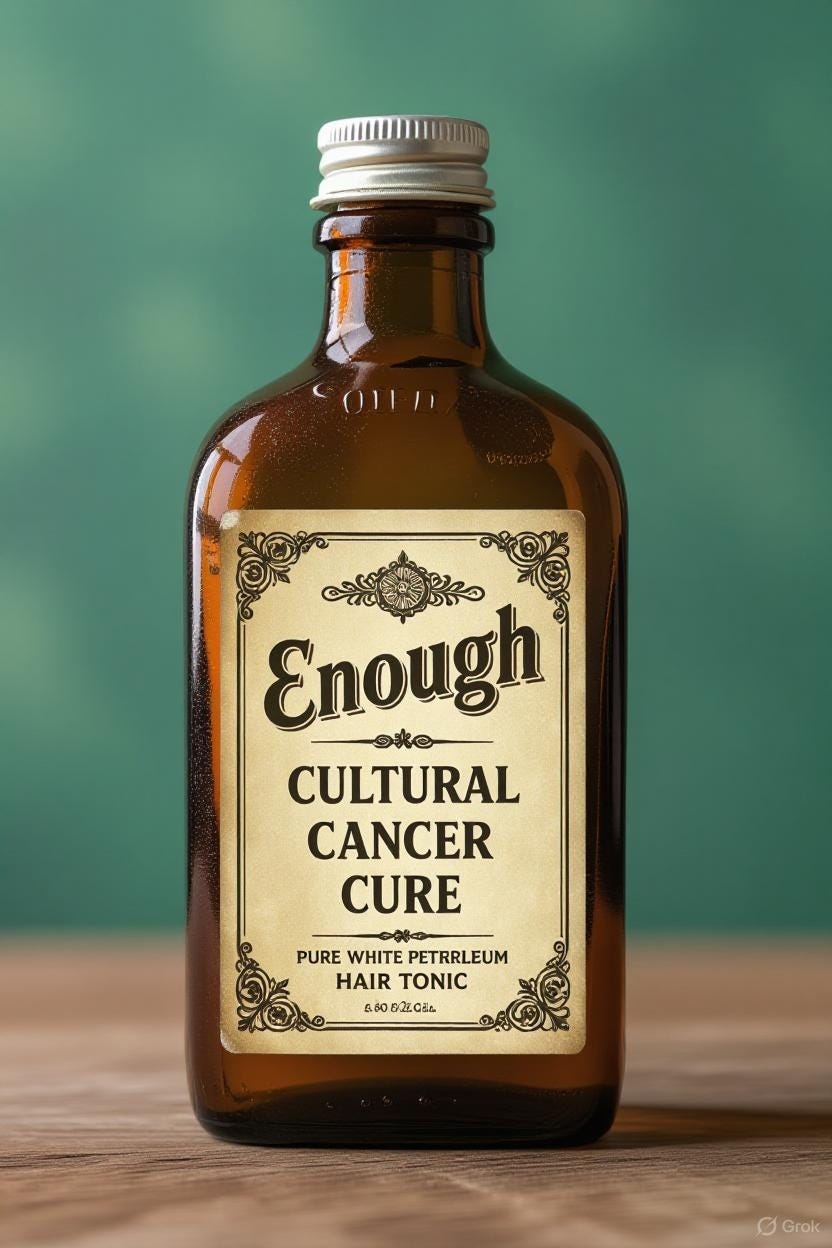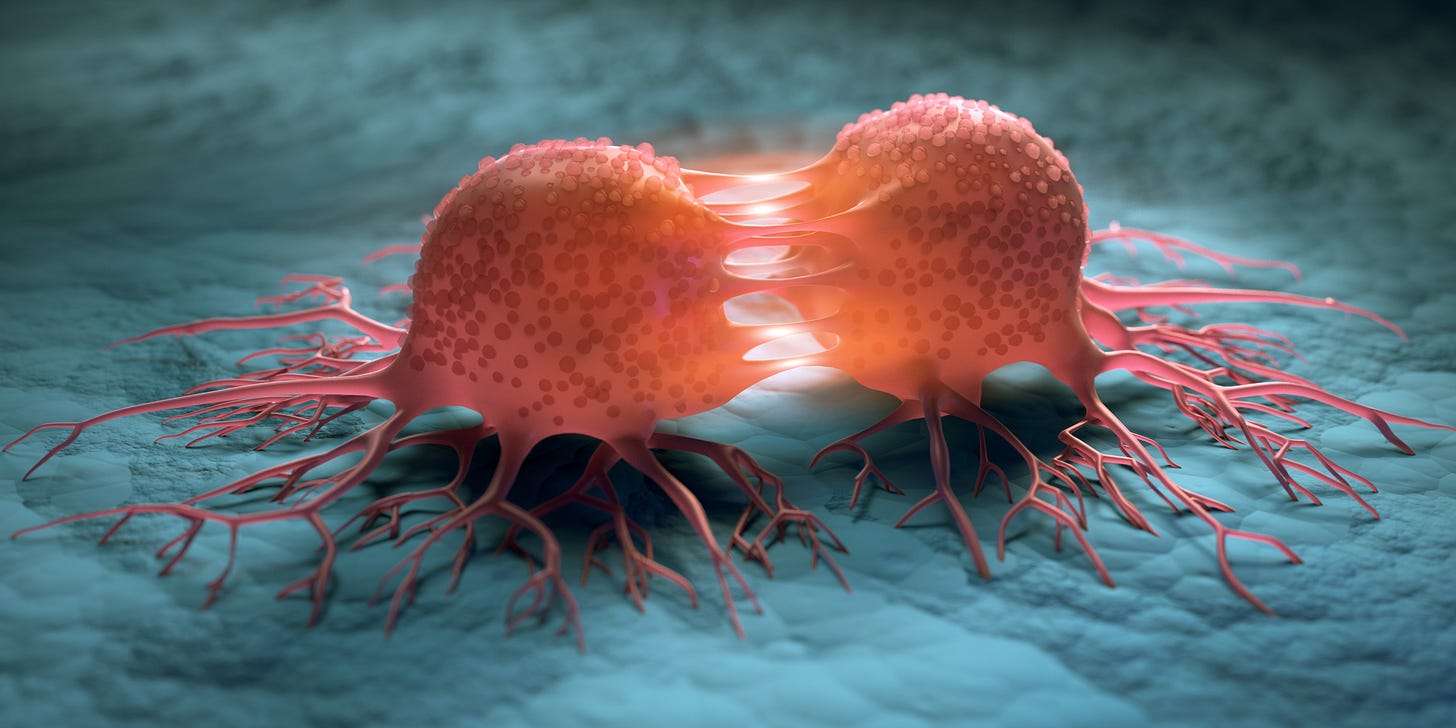Cultural Cancer
Why “Enough” May Be Our Only Cure
Authors Kurt Vonnegut and Joseph Heller were attending a party thrown by a billionaire. Vonnegut turned to Heller and asked how it makes him feel that their host makes more in one day than his masterpiece Catch-22 made in its history. According to Vonnegut, Heller replied, “I’ve got something he can never have.” To which Vonnegut asked, “What on earth could that be, Joe?” “The knowledge that I’ve got enough,” Heller responded.
This notion of enough is the Jewish concept of Dayenu, which may be the only cultural chemotherapy we have against a social cancer that Heller pointed out to Vonnegut at their dinner, and which he details in Catch-22. Since then, it has metastasized and spread throughout the body politic. Heller’s Dayenu may be our best chance to survive it.
Tropic of Cancer
The human body is an extraordinary entity, composed of intricately interlocking systems made of a stunningly wide range of specialized cells performing specific roles essential for our survival. We need the right cells in the proper numbers for everything to work. For instance, while there are about 25 trillion red blood cells in the human body, only around 300,000 muscle cells exist. Each cell is uniquely structured and located to fulfill its function, contributing to a complex choreography that keeps us alive.
Occasionally, however, something goes awry in a cell. Instead of cooperating and working with the other cells around it to do its job, it abandons its role and takes over at the expense of others. This leads to interference in the performance of surrounding cells, the failure of the system to effectively do what needs to be done, and thereby ultimately compromises the health of the individual. This is cancer.
Cancer’s insatiable growth demands more resources, expanding its presence until it disrupts the very body it once belonged to. In its relentless pursuit to be bigger, it destroys the source of nourishment required for survival. Cancer can be likened to an anatomical suicide bomber.
What drives otherwise normal cells to become such destructive forces? Sometimes environmental factors, like exposure to cigarette smoke, are to blame. Other times, genetic triggers play a role. Yet, there are instances when it simply occurs, endangering the entire body.
Cultural Cancer
Image: tugraz.at
While many have been impacted by cancer in a medical sense, a metaphorical version has emerged. Our society, like our bodies, is comprised of a similarly complex choreography of interlocking systems, where each individual contributes to maintaining harmony. Some roles may be more glamorous or better compensated, while others may be overlooked despite their necessity—an awareness that many gained during the pandemic. When everyone contributes and works for the benefit of all, society functions effectively.
However, we are witnessing a new form of cancer within this body politic. Whether driven by wealth, fame, or power, certain individuals never seem to have enough. They demand more market share, larger headlines, and complete control over others. In their quest for expansion, they diminish the ability of various social systems to fulfill their roles, sacrificing the collective good for their personal ambitions.
Such pathological characters have always existed, but in today’s media landscape—movies, music, television, podcasts, and social media—the narcissistic are often celebrated as role models. Those who genuinely care for others and perform their roles well are overshadowed by those whose unrestrained appetite for attention is rewarded. The need for unlimited growth has metastasized and is undermining the ability of those working to do what they need for the greater culture, whether in medicine, education, law enforcement, public safety, and so many other vital systems in our society. We are feeding a cultural cancer that harms us all.
That is not to say that there are not individuals like Chuck Feeny, who have disrupted industries and, through ingenuity, hard work, incredible timing, and some luck, have made tremendous amounts of money. There are wise and empathetic individuals like Nelson Mandela with whom we should entrust great power. And there are others whose otherworldly talents, from Shakespeare to Albert Einstein to Michael Jordan to Stevie Ray Vaughn, whose transcendent works rightly generate adoration and fame.
The pathology lies not in the results, but in those for whom the need to always have more and more and more can never be satisfied. Those who are rightly elevated care about the thing itself—the nation, the product, or the art form. The carcinogenic turn comes when the unrelenting drive to conquer more is for the sake of one's own ego, when it is not for the good of the whole, for the sake of what is done, but when one’s own ambition eclipses the collective good.
Dayenu
At the Passover Seder, Jews celebrate the exodus from slavery in Egypt by recounting the story over a communal meal. Rituals, readings, and songs reflect on liberation from bondage, with gratitude expressed for divine assistance in these events. The narrative of escaping Pharaoh’s control to re-establish a Jewish community in the Holy Land highlights fifteen gifts from God. With a catchy tune, they are enumerated, and after each one, everyone sings “Dayenu.” Meaning that if God had only done one thing, that would have been enough. This ethos embodies a spirit of gratitude, allowing us to appreciate individual contributions without constantly demanding more.
Embracing a Dayenu mentality means we do not ask, “What have you done for me lately?” Instead, we focus on the goodness that exists in the present. We can appreciate beauty without viewing everything as a stepping stone. While some coaches may urge us to never be satisfied, that mindset reflects cancerous growth. We should take the time to enjoy moments of excellence for their own sake, rather than always seeking the next achievement.
The relentless pursuit of growth diminishes our appreciation for what has already been accomplished. If we only see the lack, we overlook our humanity and the significance of past achievements. To acknowledge Dayenu is to honor our current state and all that has led to it. In diverting our focus from Dayenu, we risk reducing those around us to mere tools, rather than recognizing their full humanity. We need to take a moment to smell the roses— to appreciate what is right in front of us and express gratitude for it.
Enough and Catch-22
Image: pogdesign.co.uk
This concept of Dayenu is exactly what Heller was referring to in his response to Vonnegut, and the diagnosis was the same one he was pointing out in his novel Catch-22. Set in World War II, the novel follows the airmen of Colonel Cathcart’s unit. Seeking individual glory, Cathcart pushes his pilots to fly more and more increasingly dangerous missions. The more they risk their lives, the better Cathcart looks to his superiors. Experienced pilots are more likely to succeed at these increasingly difficult tasks, so Cathcart seeks to keep his best fliers.
The problem for him is that after a certain number of missions, pilots can return home after completing their duty tour. This is what his most experienced pilot, John Yossarian, wants more than anything. But every time Yossarian gets close to the required number of flights, Cathcart increases it. By doing what he needs to do to get out, Yossarian inadvertently creates the condition to change the criterion so that he can’t get out.
It is a crazy logic in which moving toward a goal triggers the moving of the goal so that it cannot be achieved by doing what needs to be done to achieve it. To work toward it guarantees that you won’t reach it. And what pathology creates this? Exactly the sort of cultural cancer we are talking about. The unquenchable need for more and more leads to the undermining of reason and the ability of the system to function rationally and effectively. Cathcart is a tumor; his need for glory has become a cultural cancer that has infected his unit and is killing it by killing his men.
Cathcart is simultaneously an indictment of the military-industrial complex and a metaphor for many outside of it. The host of the dinner Heller later attended would be one. Today, we see so many more becoming increasingly important, the cancer spreading throughout our system. But the single-mindedness of the cancer to use up more and more of the resources for its own selfish goals of self-aggrandizement leaves less and less for the social systems needed to keep us and our society functioning. Our only change is to embrace Dayenu; otherwise, we may find ourselves grieving for losing what Joseph Hellen had: enough.









Really excellent piece. The quest of those who already have billions for billions when so many have so little is indeed cancerous.
Dayenu indeed. All too often we don't appreciate what we have until it is threatened or taken away from us. It is essential to realize that no-one should have such an excess of riches that it deprives others of their very sustenance. Spread the good word.